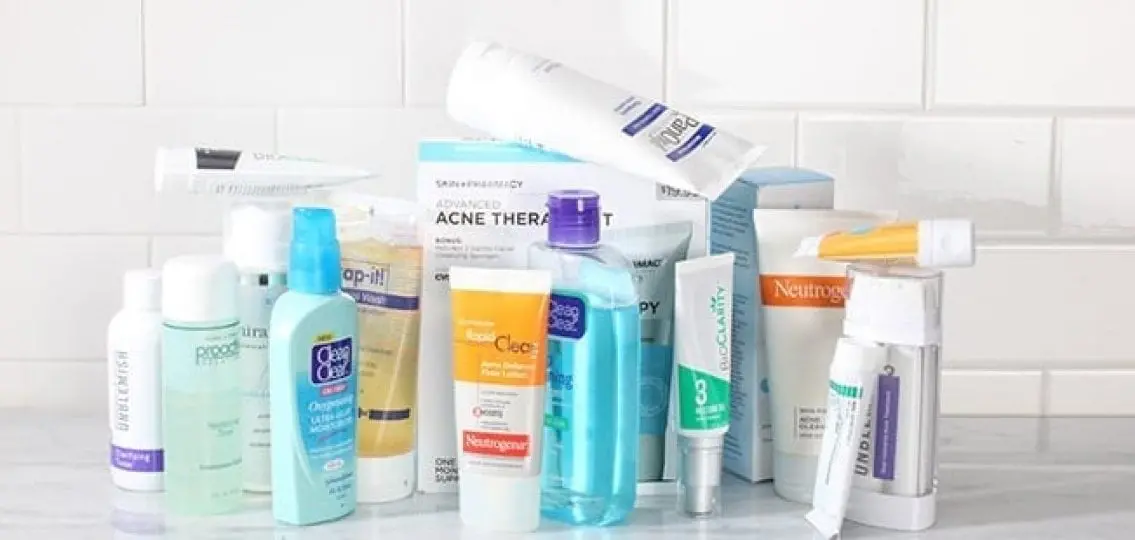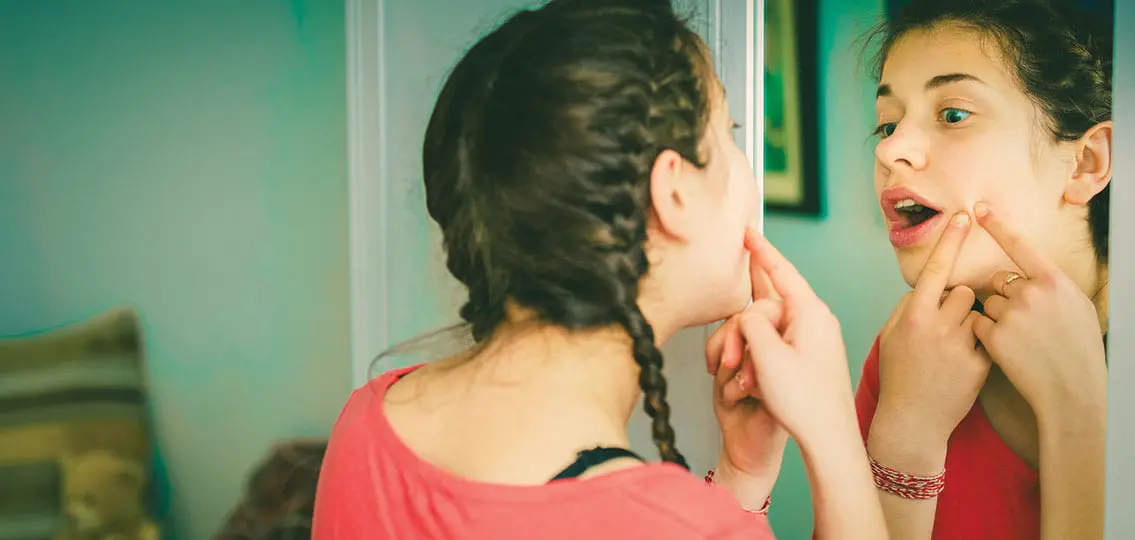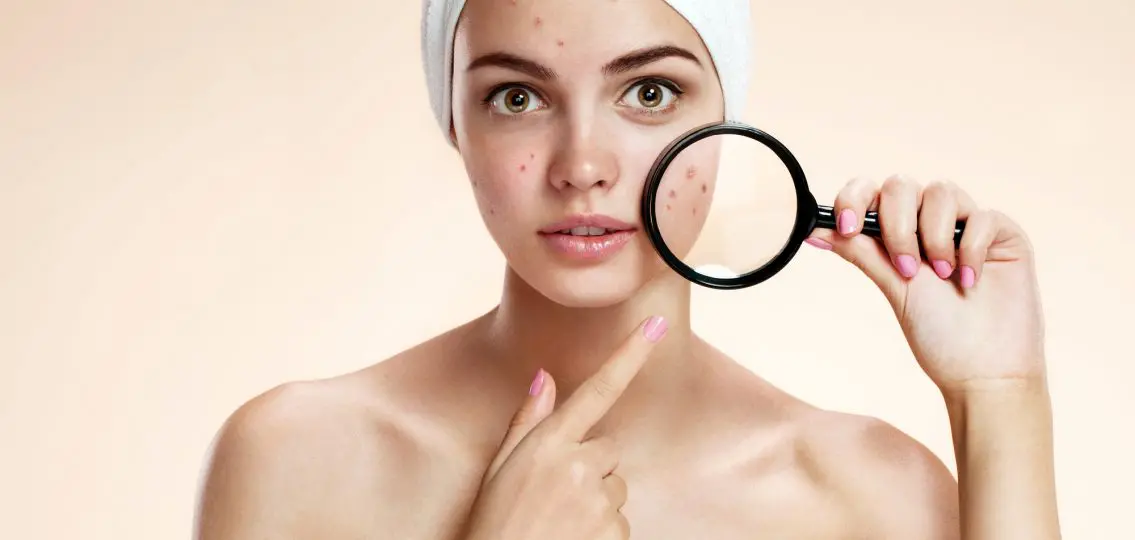Your Teen sought advice from pediatric dermatologists Robert Haber, MD, and Dr. Lisa Gelles on what causes teenage acne, how it affects teenagers’ emotionally, and when to take treatment action. From acne myths to acne scars, we answer your questions.

Q: What causes acne in teens?
Gelles: A combination of three factors causes acne: malfunctioning of oil glands, increased hormone production and bacteria. Healthy oil glands release bacteria to prevent glands from becoming clogged. For some people, the glands do not function normally. The pores become blocked, causing bacteria to become active and leading to the eruption of blackheads or whiteheads.
Q: What are the different kinds of acne?
Haber: Vulgaris or common acne appears as white heads, black heads, pimples, pustules and cysts. Mild acne appears as small whiteheads and blackheads. Mild inflammatory acne appears as redder bumps and is more visible. Cystic acne, the most severe, appears as painful, pus-filled nodules and is most likely to produce permanent scarring.
Q: When should acne be treated by a doctor?
Haber: Any breakout that persists and doesn’t clear up after about one week is considered real acne. Also, anything appearing new on the skin, such as a rash or a mole should be seen by a doctor if it doesn’t clear up within a week.
Gelles: Acne is usually easy to diagnose. Patients should consult their dermatologist if they have any questions or if their lesions don’t clear with over-the-counter medications.
Q: What are the treatments?
Gelles: For mild acne, over-the-counter products containing benzoyl peroxide or salicylic acid are usually sufficient. Treatment for moderate acne includes a wide range of prescription topical products, chosen based on type of acne, skin type and acne severity. Oral antibiotics are frequently used for inflammatory acne. For severe cystic or resistant acne, oral Accutane is used. This is an extremely effective and potent medication prescribed by dermatologists. Patients on Accutane are monitored carefully for side effects.
Q: How safe are the treatments?
Gelles: They’re all relatively safe, yet every medication has side effects. Topical medications can produce dryness or irritation. Oral antibiotics can sometimes cause headaches, upset stomach or sun sensitivity
Q: How effective are the treatments?
Haber: Accutane is one of the most effective medications that exists and when used properly can produce permanent improvement. All the other acne medications produce temporary results while the medication is being used.
Q: How long before a patient may see results?
Haber: Some teens respond dramatically within a week or two to simple topical medications, while other teens may take weeks or months to respond to progressively more aggressive treatments. Some people never respond appropriately to topical medications and those are the patients that begin using Accutane. Patients who respond well to treatment will have a 25 to 50 percent improvement within one to two months.
Q: What are the emotional effects of acne on teens?
Haber: Acne can be devastating. The reaction depends on the teen. Some teens with mild acne may refuse to leave the house, while other kids with more severe acne do not want treatment because it just doesn’t bother them.
Gelles: Studies show that adolescent acne can cause anxiety, self-consciousness, shyness and dissatisfaction with one’s appearance.
Q: What are the long-term effects of acne?
Haber: The longer a person has acne and the more severe it is, the more likely the person will have permanent scars. Also, even a mild case of acne can produce scarring in someone who is prone to scarring.
Gelles: Scarring. Aggressive treatment of inflammatory papules, nodules and cysts can often prevent this.
Q: Can acne scars be treated?
Haber: The skin will never be as perfect as it was before acne, but there are very advanced laser techniques that are very effective. When the patient has either outgrown or been treated for acne, I wait about a year before I begin laser treatment. The body has a remarkable way of healing itself and what appears to be a severe scar can become less severe or disappear altogether over time.
Q: What are some acne myths?
Gelles: Studies show there is no predictable association between acne and personal hygiene. Over-washing with granular scrubs can irritate the skin and make it worse. There is some recent evidence that avoidance of simple carbohydrates and eating more whole grains may improve the condition.

Q: Do most teens follow the regimen?
Gelles: Teens who are bothered by their acne are most likely to follow the regimen. Teens who are not bothered, but are brought to the dermatologist because their parents are bothered, are less likely to be compliant.




